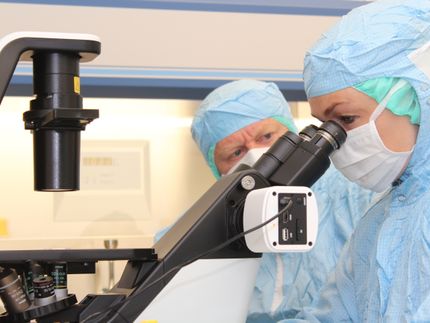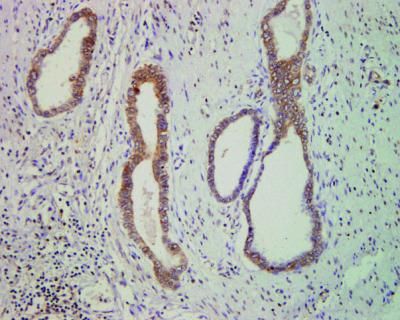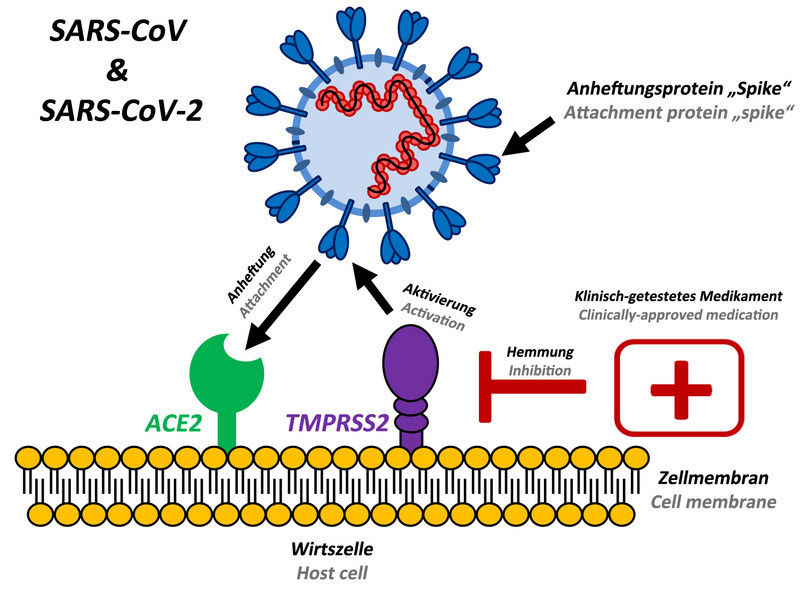Compound that reins in cancer cells found
A compound that disrupts enzyme function has been found to inhibit the growth of breast, colon and other cancer cells in laboratory testing, according to researchers.
The compound, known as UF010, blocks a crucial enzyme function that cancer cells need to replicate, said Daiqing Liao, Ph.D., an associate professor in the department of anatomy and cell biology in the UF College of Medicine. Liao, a UF Health researcher, collaborated with scientists from The Scripps Research Institute and Reaction Biology Corp., who published their findings recently in Chemistry & Biology.
UF010 works by halting a biochemical reaction catalyzed by enzymes known as histone deacetylases (HDACs). That changes the way cells modify proteins and express genetic information, which ultimately leads to tumor suppression, the researchers found.
UF010 is one of a group of compounds known as HDAC inhibitors, which are used as mood stabilizers, epilepsy therapy and, more recently, as a cancer treatment. But they also have limitations, including undesirable pharmaceutical properties that can cause poor tolerance of the medicine in patients.
The discovery of UF010 as an anticancer agent is important because it’s one of a new class of chemical compounds that are more target-specific and safer to use because they are less toxic, Liao said. It also represents a potential advance in the fight against solid-tumor cancers. The HDAC inhibitors now in use are only approved for blood cancers such as T-cell lymphoma and multiple myeloma.
In the laboratory, UF010 was found to be five times more potent than another histone deacetylase inhibitor, called MS-275, when tested on liver and colon cancer cells, researchers found. It also inhibited cancer growth when tested on a panel of 60 diverse cancer cell lines including breast, colon, prostate, ovarian and other cancertypes.
UF010 has novel enzyme-inhibiting properties that heighten its potential as a cancer therapy, researchers found. The compound was found to be particularly effective at halting the spread of tumors and inhibiting several major mechanisms that cause them.
“We showed the compound can activate tumor suppression pathways and it can inhibit the oncogenic pathways. This is an exciting new property for these inhibitors,” Liao said.
It’s particularly encouraging that UF010 can activate two major pathways that suppress tumors while also suppressing three pathways that cause them, Liao said. Researchers don’t yet fully understand why the compound works that way.
UF010 also appears to be less toxic than other similar compounds, according to work that Liao and his colleagues have done in a preliminary, unpublished study that used a mouse model.
Next, Liao hopes to study UF010’s effect on tumors in a mouse model. The ultimate goal is to assess whether the new compounds would be effective for treating cancer patients.
Organizations
Other news from the department science

Get the life science industry in your inbox
By submitting this form you agree that LUMITOS AG will send you the newsletter(s) selected above by email. Your data will not be passed on to third parties. Your data will be stored and processed in accordance with our data protection regulations. LUMITOS may contact you by email for the purpose of advertising or market and opinion surveys. You can revoke your consent at any time without giving reasons to LUMITOS AG, Ernst-Augustin-Str. 2, 12489 Berlin, Germany or by e-mail at revoke@lumitos.com with effect for the future. In addition, each email contains a link to unsubscribe from the corresponding newsletter.






















































